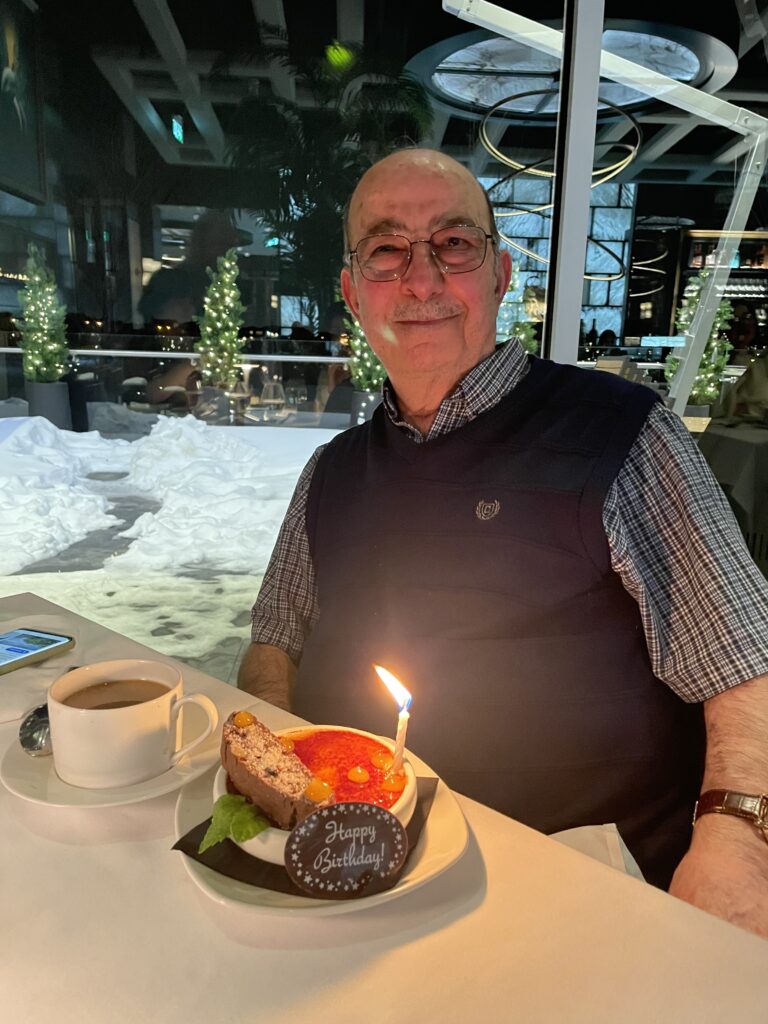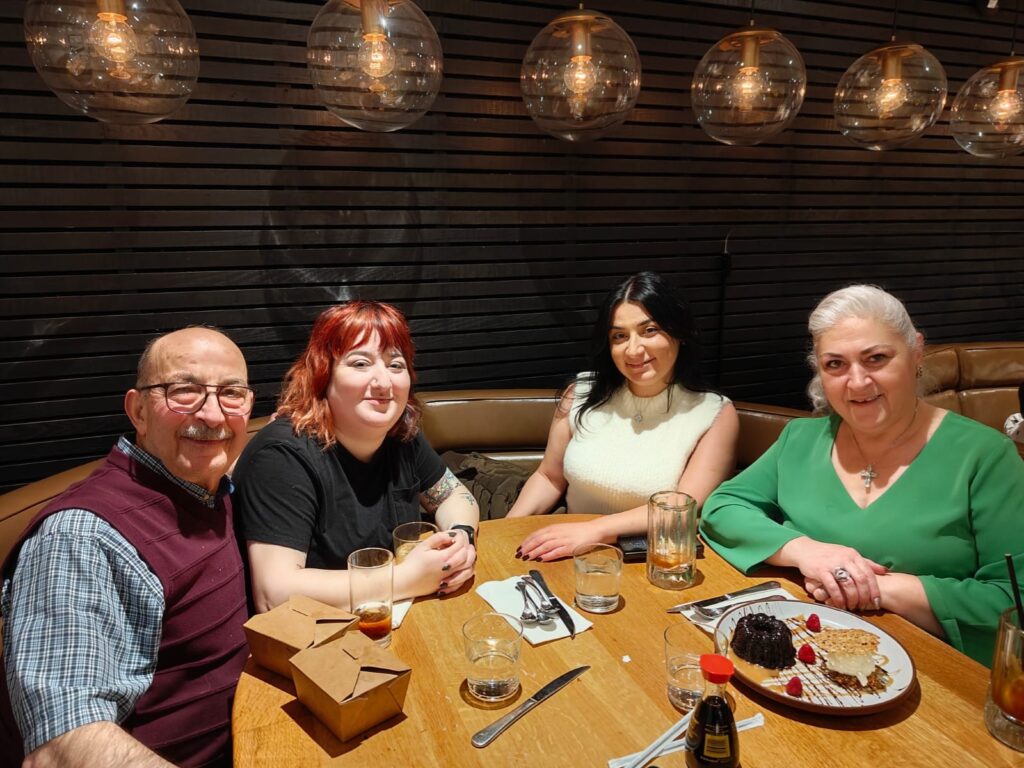The value of good health is often underappreciated until we face a medical setback. Fayez Shlah knows this all too well after experiencing many cardiac issues, beginning when he was 41.
Fayez, a passionate soccer player, always found joy on the field. During a game in the winter of 1995, he felt something was off. Suddenly, struggling to breathe, he collapsed on the pitch. Concerned friends rushed to his side, helping him sit down. Although he initially wanted to resume playing, his friends wisely convinced him to take a break.
He was advised by a fellow player, who was also a doctor, to see his family physician. After further testing, he was referred to a cardiologist, one whom his brother had introduced him to, Dr. Dean Traboulsi. A series of exams revealed that Fayez had a blockage in his aorta. Dr. Traboulsi performed an angioplasty with stent implantation. Fayez went back to his regular routine.

In 1998, his brother visited him at work to see if he wanted to go for coffee. He distinctly remembers there being 13 stairs to go up, and after taking six steps, he couldn’t catch his breath. Concerned, they called Dr. Traboulsi, who understood the urgency and recommended they head to Peter Lougheed Centre immediately to be seen by him.
Upon examination, Dr. Traboulsi strongly advised against Fayez going home to wait for a hospital bed, instead, pushing for immediate tests. Following the test results, Dr. Traboulsi confirmed that Fayez required urgent cardiac surgery. Fayez spent a week in the Intensive Care Unit before undergoing his first open-heart surgery – a triple bypass – at Foothills Medical Centre.
“Mr. Shlah presented with classic symptoms for impending heart attack. His stress test showed high-risk features. The combination of the above compelled me to insist that he remain hospitalized to undergo further investigations which ultimately led to urgent cardiac surgery,” said Dr. Traboulsi.
“I can’t say enough about Dr. Traboulsi. He saved my life,” Fayez said.
The recovery from the surgery was challenging and took almost two months. Throughout this period, fatigue was pervasive and the ability to do daily activities was limited.
After regaining his strength, he was able to return to work and his usual routines, including getting back on the soccer field.
“It was my privilege to have been involved in Mr. Shlah’s care. He was an active participant in his care, complying with our recommendations and making difficult but necessary lifestyle changes,” said Dr. Traboulsi.
Then, in 2011, he faced another medical hurdle and needed to have another open-heart surgery where surgeons had to replace a valve and do a single bypass surgery. He endured a lengthy recovery again after this surgery.
“After the second heart incident with replacing the valve, doctors warned me not to play soccer anymore.”
Despite having to give up playing the game he loves, Fayez continued to have an optimistic view on life and felt lucky to have survived the myriad of cardiac issues he had endured.
In the middle of the night in 2020, Fayez suddenly felt unwell.
“I felt something sitting on my chest constantly, and then my arm went numb.”
He woke up his wife, Jina, and she took him to the Emergency Department at Rockyview General Hospital. Fayez was having a heart attack. As soon as they arrived, his blood pressure was checked and was alarmingly high at 220/140. He was rushed by ambulance to Foothills Medical Centre where surgeons successfully performed a minimally invasive surgery to insert a stent in his heart at the Cardiac Catheterization Lab.
Whether a patient is experiencing a cardiac emergency or requires cardiac testing or diagnostic angiography, the Catheterization Labs are a critical tool in rapid response to the immediate concerns cardiovascular disease presents. One of these labs was recently upgraded significantly with the support of Calgary Health Foundation, becoming the home of Southern Alberta’s life-saving Structural Heart Program. This program specializes in providing repair or replacement of cardiac valves and repairing congenital heart defects. The newly renovated space allows staff to conduct state of the art analysis, helping them make better decisions and take on more complex conditions as well as get through procedures, allowing them to take on more cases.

The surgery was successful and he was able to go home a few days later. Fayez was amazed at how well he felt after the minimally invasive surgery in comparison to the two open-heart surgeries he had. There was almost no recovery time post-surgery and his blood pressure returned to normal. Since then, he has had virtually no issues or concerns with his heart, and his blood pressure remains within a normal range.
“My blood pressure is very good now because of this stent,” Fayez said.
Fayez has immense gratitude for the exceptional care he’s received during his medical journey. In each instance, he’s encountered professional and high-quality healthcare. He credits his close-knit family for helping him get back on his feet. Although he can no longer play soccer, he’s thankful to be able to enjoy life alongside his friends and family.
February marks the beginning of heart month for us at Calgary Health Foundation where we concentrate on cardiovascular health and dedicate our fundraising campaign to enhancing cardiac care.


